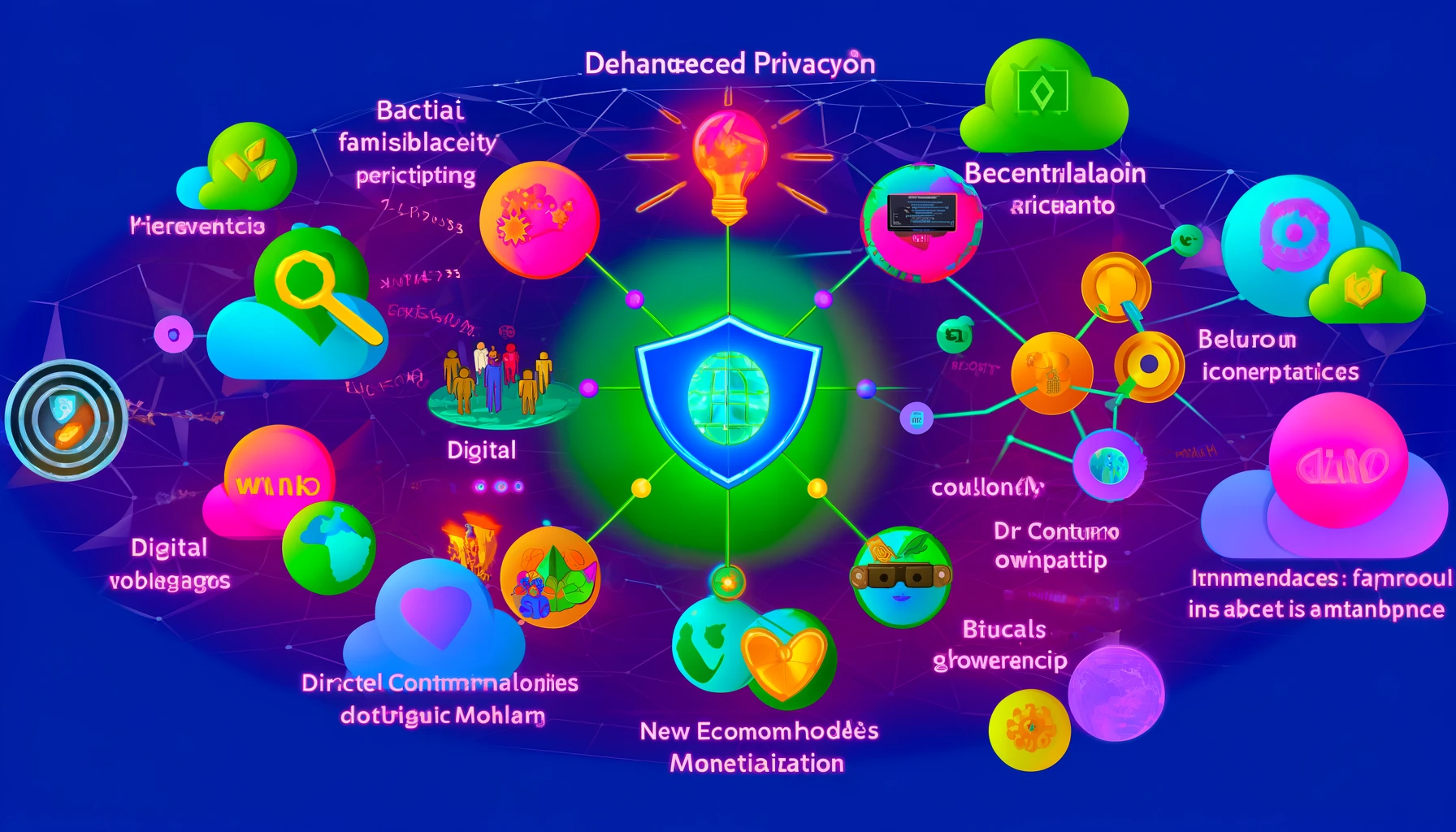
Understanding the concepts of Web2 and Web3 and recognizing how Web3 differs from the current internet (largely considered Web2) can be beneficial for several reasons. Here are twenty reasons why this knowledge is valuable:
-
Technological Literacy: Knowing about Web2 and Web3 improves your overall technological literacy, keeping you informed about the evolution of the internet.
-
Investment Opportunities: Understanding Web3 could uncover new investment opportunities in emerging technologies and platforms.
-
Career Development: As industries adapt to Web3 technologies, being knowledgeable in this area can open up new career paths and advancement opportunities.
-
Enhanced Privacy: Web3 emphasizes user privacy and data ownership, a shift from the data-centralization practices of Web2.
-
Decentralization: Learning about the decentralized nature of Web3 can help you understand its potential for creating more democratic and equitable online spaces.
-
Blockchain Familiarity: Web3 is closely tied to blockchain technology; understanding Web3 can enhance your understanding of blockchain and its applications.
-
Innovation Participation: Knowledge of Web3 can position you to participate in, contribute to, or influence the next wave of internet innovations.
-
Security Awareness: Web3 technologies offer new security paradigms; understanding these can help you better secure your digital assets and information.
-
Smart Contracts: Understanding Web3 introduces you to smart contracts, which could revolutionize agreements and transactions in various sectors.
-
Digital Ownership: Web3’s emphasis on digital ownership, through NFTs and other means, can change how you perceive and manage digital assets.
-
Community Governance: Many Web3 projects use DAOs (Decentralized Autonomous Organizations) for governance, offering insights into community-led decision-making.
-
Global Accessibility: Web3 aims to enhance global internet accessibility, making understanding its principles relevant for promoting global connectivity.
-
Immersive Experiences: Web3 is expected to support more immersive digital experiences, like those in the Metaverse, affecting entertainment, education, and more.
-
Economic Models: Web3 introduces new economic models, such as tokenomics, which could influence future digital and real-world economies.
-
Content Monetization: Web3 provides creators with new ways to monetize content directly, without intermediaries, impacting various creative industries.
-
Sustainability: Some Web3 technologies focus on sustainability, offering solutions to the energy-intensive problems of some current digital technologies.
-
Interoperability: Web3 emphasizes interoperability among services and platforms, a shift that could significantly impact user experience and service delivery.
-
Personal Data Control: Understanding Web3 can highlight ways to regain control over your personal data, countering the current norm of corporate-owned user data.
-
New Social Networks: Web3 is likely to give rise to new forms of social networking that emphasize user control and content ownership.
-
Emerging Markets: Web3 has the potential to create entirely new markets and business models, understanding which could be crucial for entrepreneurs and business leaders.
Gaining insight into Web2 and Web3 not only broadens your understanding of current technological trends but also equips you with the knowledge to navigate future developments in the digital world.


